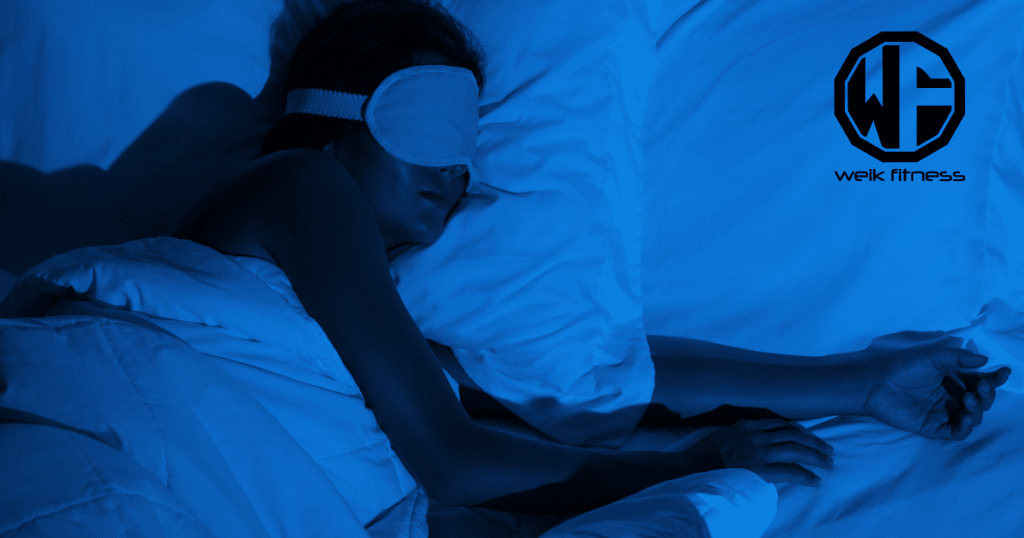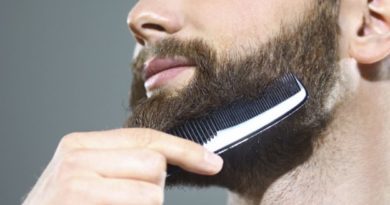5 Ways You Can Get a Better Night’s Sleep Starting Tonight
If you’ve ever tossed and turned all night, you know how frustrating poor rest can be. Getting a better night’s sleep is one of the most powerful things you can do for your body and mind. If you find you never seem to get enough sleep, there are proven strategies that can help.
As a certified strength coach and sports nutritionist with over two decades of experience, I’ve seen firsthand how crucial quality rest is for recovery, performance, and overall health.
This guide will break down the simple, science-backed adjustments you can make to your routine and environment to get a better night’s sleep starting tonight.
Note: For optimal health benefits, the Centers for Disease Control and Prevention (CDC) recommends adults aim for a minimum of seven hours of quality sleep each night.
Disclaimer: This article is for informational purposes only and is not meant to treat or diagnose any condition. It is recommended that you speak with your doctor before starting any exercise program, changing your daily nutrition, or adding any supplements to your regimen.
Table of contents
Key Takeaways for a Better Night’s Sleep
- Set Your Thermostat:** Aim for a cool 60-67°F (15-19°C) to help initiate sleep by lowering your body’s core temperature.
- Embrace Total Darkness: Use blackout curtains and cover all electronic lights to maximize your body’s production of melatonin, the sleep hormone.
- Implement a Digital Curfew: Power down your phone and other screens 60-90 minutes before bed to avoid blue light, which disrupts your natural sleep-wake cycle.
- Optimize Your Sound Environment: Use a white noise machine or earplugs to block disruptive sounds. Apps like Calm can also provide soothing soundscapes.

Why Should I Care About Getting a Better Night’s Sleep?
Prioritizing sleep is not a luxury; it’s a fundamental pillar of health. The impact of quality rest is so significant that in 2022, the American Heart Association added sleep duration to its checklist for optimal cardiovascular health, now called “Life’s Essential 8.”
When you consistently get the rest you need, you unlock profound benefits for your physical and mental well-being.
1. Strengthen Your Physical Health and Recovery
Sleep is prime time for your body’s repair crew. During deep sleep, your body works to repair muscles, heal tissue, and manage inflammation. Chronic sleep deprivation is linked to a higher risk of heart disease, high blood pressure, and type 2 diabetes.
It also keeps your immune system strong. While you sleep, your body produces cytokines, which are proteins that target infection and inflammation, creating a powerful immune response.
2. Sharpen Your Mental Performance
A rested brain is a productive brain. Sleep is critical for memory consolidation, the process where your brain converts short-term memories into stable, long-term ones. Without enough sleep, your ability to learn, focus, and solve problems declines sharply.
It also plays a massive role in emotional regulation. When you’re sleep-deprived, the emotional centers of your brain are more reactive, which is why you may feel more irritable or stressed after a poor night’s sleep.
Try These Methods to Get a Better Night’s Sleep Tonight

Below are five practical and evidence-based methods you can implement to dramatically improve your sleep quality.
1. Make your bedroom colder
Your body temperature naturally dips to initiate sleep, and a cool room helps facilitate this process. The Sleep Foundation recommends a bedroom temperature between 60 and 67 degrees Fahrenheit (15.6 to 19.4 degrees Celsius) for optimal sleep.
If your room feels stuffy, you’ll struggle to fall and stay asleep. You can achieve the ideal temperature by turning down your thermostat before bed. A smart thermostat, like a Google Nest, can even automate this for you. Opening a window or using a fan also helps circulate air and keep you cool.
2. Make sure it’s completely dark
Light is the most powerful signal that tells your brain to be awake. Even small amounts of light can suppress the production of melatonin, the hormone that governs your sleep-wake cycle. To get a better night’s sleep, your room needs to be as dark as possible.
Invest in blackout blinds or thick curtains to block outside light. For light inside the room, a simple pro-tip is to cover small LED lights on chargers or electronics with a piece of black electrical tape. If you can’t eliminate all light, an eye mask like the Manta Sleep Mask can provide complete darkness.

3. Turn off your phone
Your phone is one of the biggest enemies of good sleep. The blue light emitted from screens has been shown to be particularly disruptive to melatonin production. My advice to all my clients is to establish a “digital curfew” and turn off all screens at least 60 to 90 minutes before bed.
Related Article: Change Your Sleep Position and Wake Up Without Back Pain
If you absolutely must use your phone, enable features like Apple’s “Night Shift” or Android’s “Night Light” to reduce blue light exposure. However, the best practice is to put your phone away entirely. Set it to “do not disturb” mode, allowing calls only from essential contacts for emergencies.
4. Eliminate any noise
Unexpected noises can easily pull you out of deep sleep. A consistent, soothing sound environment can mask disruptions from traffic, neighbors, or a barking dog. A white noise machine is a fantastic tool for this, and many people find the lower frequencies of “pink noise” or “brown noise” even more relaxing.
You can use a dedicated device like the LectroFan EVO or an app on your phone like Calm or White Noise Lite. Alternatively, high-fidelity earplugs can block 20-30 decibels of sound. Just ensure that you can still hear critical safety alerts like smoke alarms.
5. Change what you wear to bed
Restrictive clothing can make it difficult to get comfortable and can trap heat, disrupting your body’s ability to cool down. Choose sleepwear made from soft, breathable, and moisture-wicking fabrics.
Natural fibers like cotton, bamboo, and TENCEL™ Modal are excellent choices because they help with thermoregulation. Synthetics like polyester are less breathable and can make you feel overheated. If you are comfortable, sleeping in undergarments or naked is a great way to help your body stay cool throughout the night for better recovery.
FAQs to Get a Better Night’s Sleep
How long should it take to fall asleep?
A healthy sleep latency, the time it takes you to fall asleep, is typically between 15 and 20 minutes. If you fall asleep instantly, it might be a sign of significant sleep deprivation. If it regularly takes you more than 30 minutes, it could indicate insomnia.
Is hitting the snooze button bad for you?
Yes, it’s best to avoid the snooze button. When you hit snooze and drift back into a light, fragmented sleep, you can trigger sleep inertia, that groggy, disoriented feeling that can last for hours. It’s much better for your internal clock to set your alarm for when you actually need to get up.
What should I do if I wake up in the middle of the night?
It’s normal to wake up briefly during the night. However, if you find yourself wide awake and unable to fall back asleep after about 20-25 minutes, get out of bed. This is a core principle of Cognitive Behavioral Therapy for Insomnia (CBT-I). Go to another room and do something quiet and relaxing, like reading a book in dim light, until you feel sleepy again. Avoid looking at your phone.
Does the timing of my workout affect my sleep?
Absolutely. For most people, exercising in the morning or afternoon can promote a better night’s sleep. Intense exercise too close to bedtime can raise your core body temperature, heart rate, and adrenaline levels, making it harder to wind down. Try to finish any vigorous workouts at least 2-3 hours before you plan to go to sleep.


*Disclosure: This article may contain affiliate links or ads, which means we earn a small commission at no extra cost to you if you make a purchase through these links. These commissions help support the operation and maintenance of our website, allowing us to continue producing free valuable content. Your support is genuinely appreciated, whether you choose to use our links or not. Thank you for being a part of our community and enjoying our content.
PLEASE CONSIDER SHARING THIS ON YOUR SOCIAL MEDIA TO HELP OTHERS LEARN MORE ABOUT THIS TOPIC.





